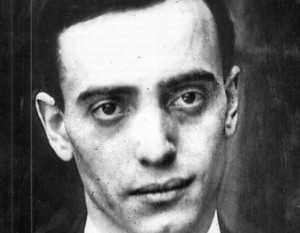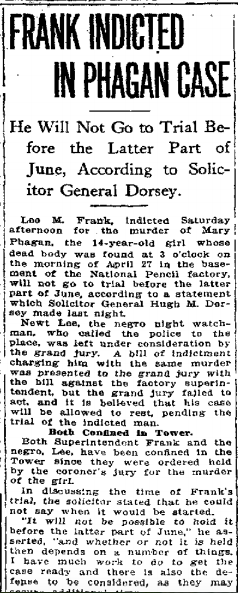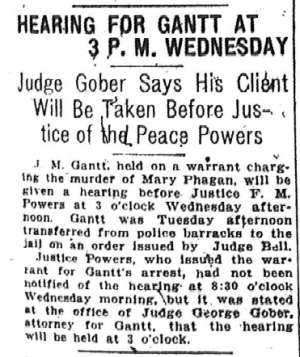 Another in our series of new transcriptions of contemporary articles on the Leo Frank case.
Another in our series of new transcriptions of contemporary articles on the Leo Frank case.
Atlanta Journal
Wednesday, April 30th, 1913
Judge Gober Says His Client Will Be Taken Before Justice of the Peace Powers
J. M. Gantt, held on a warrant charging the murder of Mary Phagan, will given a hearing before Justice F. M. Powers at 3 o’clock Wednesday afternoon. Gantt was Tuesday afternoon transferred from police barracks to the jail on an order issued by Judge Bell.
Justice Powers, who issued the warrant for Gantt’s arrest, had not been notified of the hearing at 8:30 o’clock Wednesday morning, but it was stated at the office of Judge George Gober, attorney for Gantt, that the hearing will be held at 3 o’clock.
* * *
Atlanta Journal, April 30th 1913, “Hearing for Gantt at 3 P.M. Wednesday,” Leo Frank case newspaper article series (Original PDF)

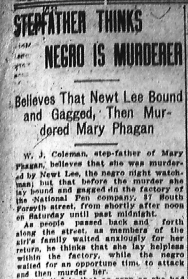
![J. M. Gant [sic], who was arrested at Marietta and brough[t] to Atlanta Monday, charged with the death of Mary Phagan. [Gantt was in the factory on the Saturday of the murder to pick up a pair of shoes he had left since leaving the Pencil company. Leo M. Frank was very reluctant to let him inside the building. Originally, Frank's behavior towards Gantt was assumed to be because of Gantt's recent firing, even though there were no bad relations between the two -- Ed.]](https://www.leofrank.org/wp-content/uploads/2016/03/State-Offers-Two-Hundred-Dollar-Reward-300x514.png)

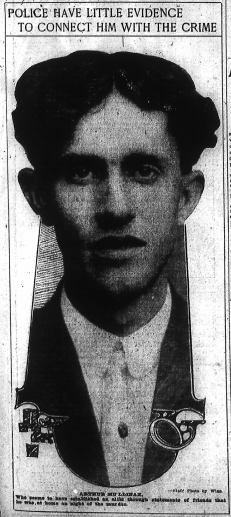
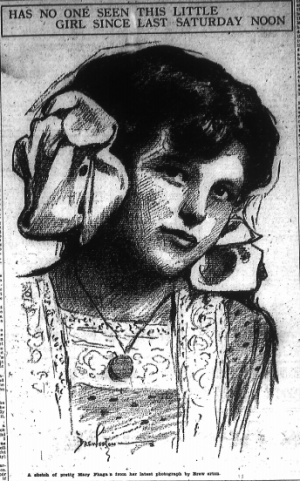
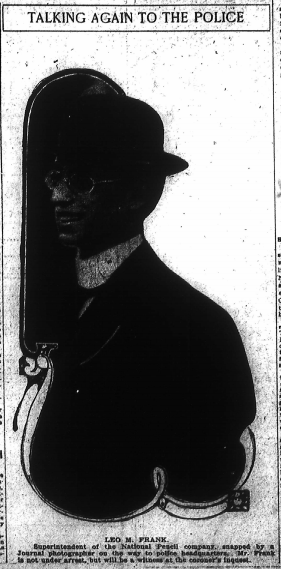





 Another in
Another in  Another in
Another in  Another in
Another in  Another in
Another in 
 Another in
Another in 